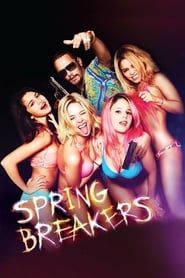It's curious to me how Selena Gomez leaving the group so early in the film made it feel like this was based on a true story. Nevertheless, I never saw these teen idols in their original Disney-friendly personas, so their stunt casting was rather lost on me. But it did mean that this film was made almost entirely in the edit — not simply because of its weird K-hole logic and flexible approach to temporality but because of the way the edit could utilise up those "spring break!" visuals without having a specific and didactic message to make. It's not that having an overt intention cannot work: see Molly Manning Walker's How to Have Sex (2023) for one recent example. But it certainly is less intriguing and mysterious. Anyway, Spring Breakers certainly doesn't look and feel like other mainstream movies aimed at this demographic (or at least the one implied by the film's marketing materials), and for this and other reasons, I would probably pair this film with Janicza Bravo's Zola (2020).
Spinning a hypnotic, repetitive web of sound and images, Korine crafts a vision, not an argument, but a no less beguilingly weird (and occasionally repulsive) one at that. [Finally, an] oozy surreality takes over completely and the sense of endlessness, of being stuck in a world that obeys its own logic and leaves no room for escape, becomes overwhelming. Desperately, the characters repeat the refrain “Spring break forever!” In one regard, it’s a hollow sentiment, a lament for their inability to achieve the traditional thrills promised by MTV. In another, more significant sense, however, it’s an accurate descriptor of the film’s K-hole sensibility. For Korine, spring break is a beautiful nightmare from which we will never awake.
— Andrew Schenker (Slant Magazine)
One of few hedonistic crime movies that very successfully balances the glorification and the sharp critique of its subject.
— R. Kurt Osenlund (Slant Magazine)
I wanted to make something that was very experiential—something that was like a liquid narrative, with micro scenes, like something you’d see in electronic music. I thought of it like loop-based music, where you’d have certain things that would repeat, and come back—refrains.
[Art]-house maximalism with a tenor like poetry, an incisive and critical drama unafraid to relish and indulge in the subject it intends to deconstruct. You could call it “high-trash” cinema; it collects the cast-aside bric-a-brac of an ostensibly bankrupt culture [and] transforms it into something earnestly, maybe even transcendently, gorgeous.
— Calum Marsh (Slant Magazine)

